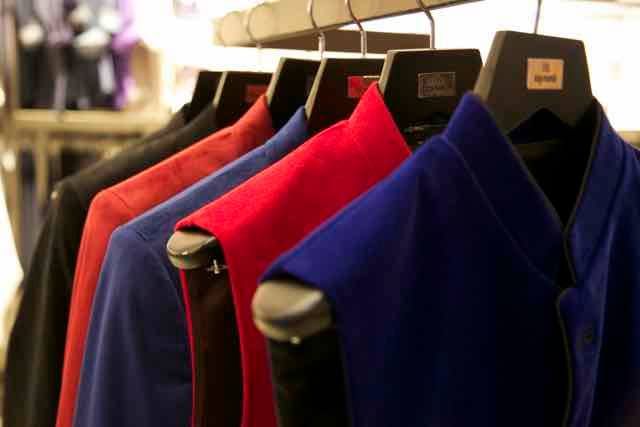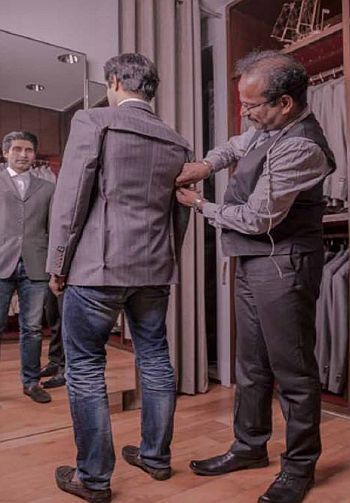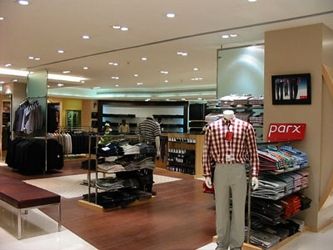Raymond, which started selling suitings over the counter as early as 1958, stepped it up from the eighties on.

Prescience helped one of the oldest brands in India stay relevant.
Whether it was shifting from blankets to suitings, pre-empting apparel retail or portraying the modern Indian man, Raymond Apparel (formed in 1969, a 100 per cent subsidiary of Raymond Limited), appears to have read its audience well.
Raymond was one of the first to start organised apparel retail in India.
After liberalisation, textile players were the first to flag off retail chains before any other sector.
Raymond, which started selling suitings over the counter as early as 1958, stepped it up from the eighties on.

Raymond’s stores led to its ubiquitous brand recall to this day, observe brand experts.
It also developed a dealer network, with some of its retailers in their third-fourth generations.
It now has a e-commerce portal.
The retail strides of Raymond, whose roots were in Raymond Woollen Mills (set up in Thane in 1925), were made under Dr Vijaypat Singhania who oversaw the diversification into men’s suits, readymade garments, denims in textiles and cement, steel in other businesses, after he became the chairman in 1980.
Park Avenue was Raymond’s first ready-to-wear brand, launched in 1986, followed by Parx in 1998.

In 2000, his son and the present CMD, Gautam Singhania took over.
He fuelled Raymond’s retail and readymade drive further, especially in mens corporate and designerwear.
While in the 90s, the market was 30 per cent readymade garments and 70 per cent fabrics, today it is just the reverse.
Raymond calls itself the largest vertically and horizontally integrated maker of worsted suiting fabric.

Singhania scripted the acquisition of the Chennai-based brand ColorPlus in 2001-02, to plug the gap in high-end casualwear for men.
By then, Raymond had begun to fan out in more areas of readymade apparels, besides worsted suitings, such as premium cotton shirting, jeanswear and brands.
While the eponymous brand is premium formalwear, Park Avenue also caters to relaxed work wear, Parx is casualwear.
Singhania, though, insists that demand for fabric will not diminish: “The bulk of the Raymond’s business is still fabric, which will continue to grow.
“There are people with different shapes and sizes, they like customisation and tailoring.
Versus Vimal
In the mid-80s, it was Reliance’s Vimal that had a slight edge. It used models, Bollywood stars and cricketers in its ads and had people humming its jingle ‘Only Vimal’.
However, Raymond gradually stepped up its branding efforts.
Renowned adman, Frank Simoes came up with its first memorable campaign with the ‘Guide to the well-dressed man’, showing textiles in a well-designed and sophisticated way in the 80s.
Raymond also caught the boom in readymade garment that the domestic market was poised for, while Reliance’s change in senior management saw Vimal’s aggression wane by 2000-01.
Other apparel brands from Madura Garments, Arvind Mills and departmental stores, too, were gaining steam.

Despite selling in a greater number of exclusive stores, Vimal lacked the variety of more readymade garments and accessories (it had already exited sarees) to draw consumers in, unlike Raymond.
In 1992, Raymond’s trail-blazing campaign, ‘The Complete Man’, by Rajiv Agarwal of Enterprise Nexus, created a personality who embraced emotions, had a sense of humour, was sensitive and vulnerable.
He fulfilled his societal and familial roles to a fault. As brand experts have noted, it showed a man that the upper-end Indian male consumer was aspiring to evolve into, choosing brains over brawn.
The immediate competition, too, changed their tone.
If earlier celebrity endorsers appeared by themselves in suitings ads, brands such as Gwalior Suitings (Tiger Pataudi) Mayur Suitings (Shah Rukh Khan) had them appear as a family man.
By the turn of the century, the group focused on its twin core businesses -- textile and readymade garments.
It exited cement (2001) and steel (2004), freeing up financial muscle. Raymond now has 10,000-sq-ft flagship stores besides Raymond Shops.
It also distributes the Italian denim brand GAS, for contemporary, premium denimwear.
It entered the womens segment, the biggest readymade apparel segment, through two of its brands, Park Avenue and ColorPlus.
Singhania says, “In every price-point, we ensure that we are at the premium end of it, so that the aspirational quality is retained.
“We are there from the Rs 150-per-metre to the Rs 3-lakh-per-metre segments.

“The brand’s qualities of trust and excellence show through each.”
Its current challenge lies elsewhere.
It lords over worsted suitings with 60 per cent market share, but the competition in readymade garments is formidable.
Moreover, woollen suitings, its stronghold, has lost its absolute hold on formalwear, with lighter apparel and a casual look finding their way into boardrooms.
Its iconoclastic campaign, too, has been questioned about its scope, as it veered towards making a fashion statement, away from the emotional connect.
The latest ads by the Raj Kamble-headed Famous Innovations, go back to the emotional roots with themes like ‘letting go’ (a middle-aged father lets go of his teenage daughter after overcoming his anxiousness as a parent) and ‘being there’ (the husband chooses to stay back so the wife can leave for work while he tends to their baby).
Singhania says, “It is an aspirational position, you can never become the complete man.
“It will continue to be our corporate campaign and has stood us in good stead for the last 25 years.











